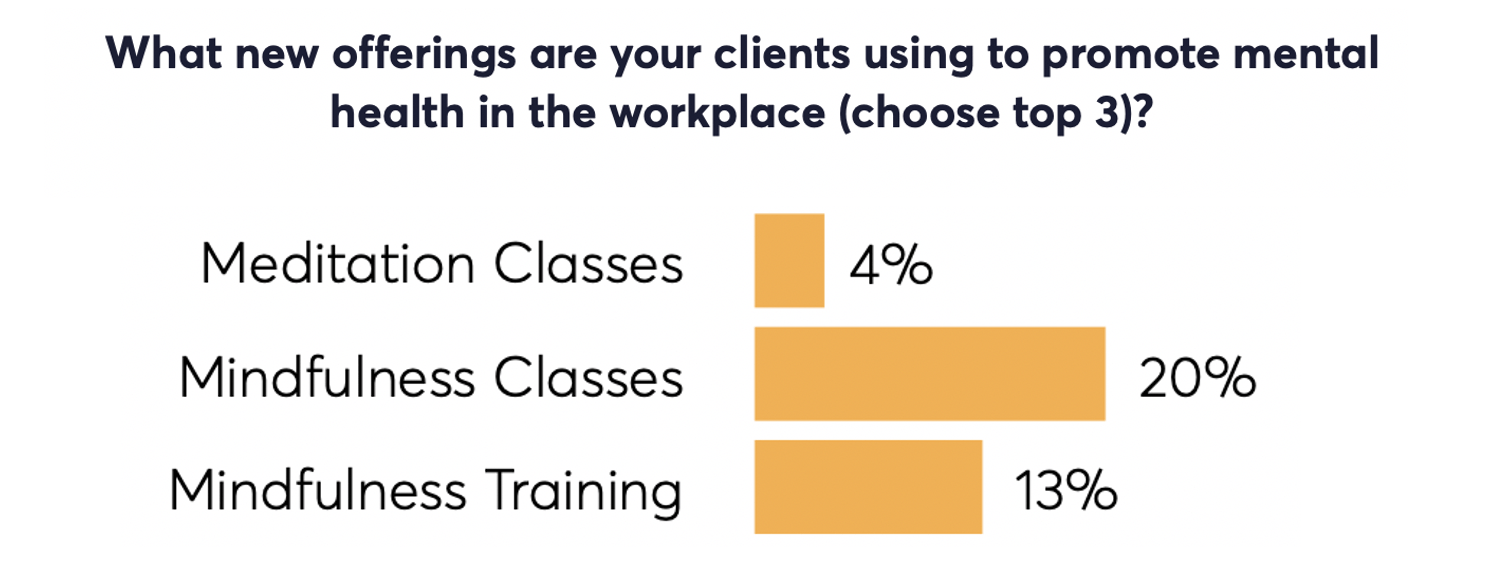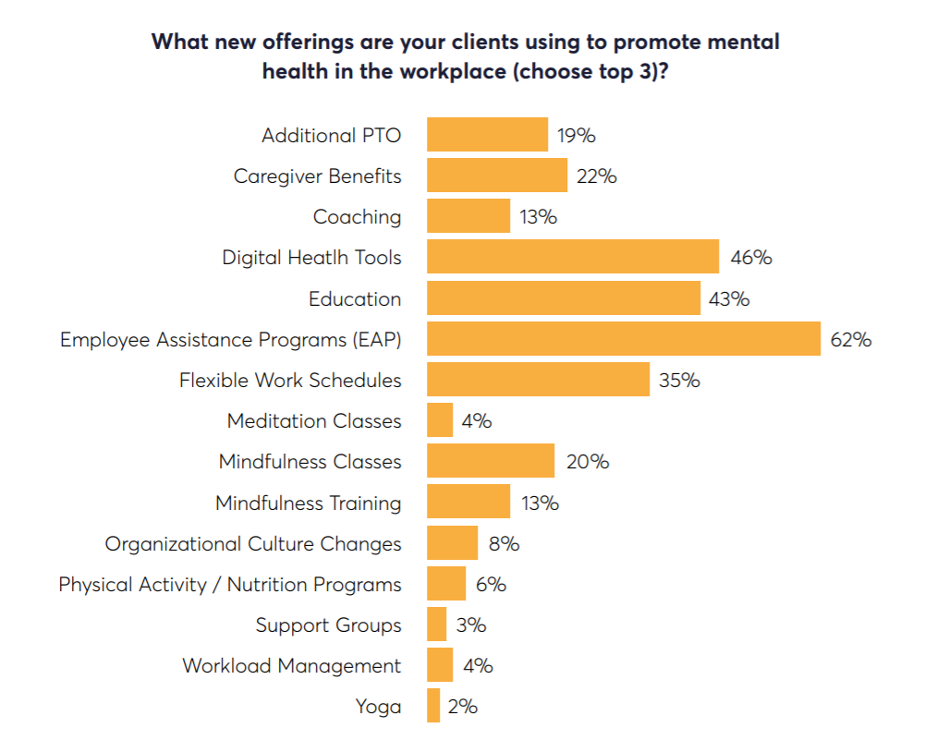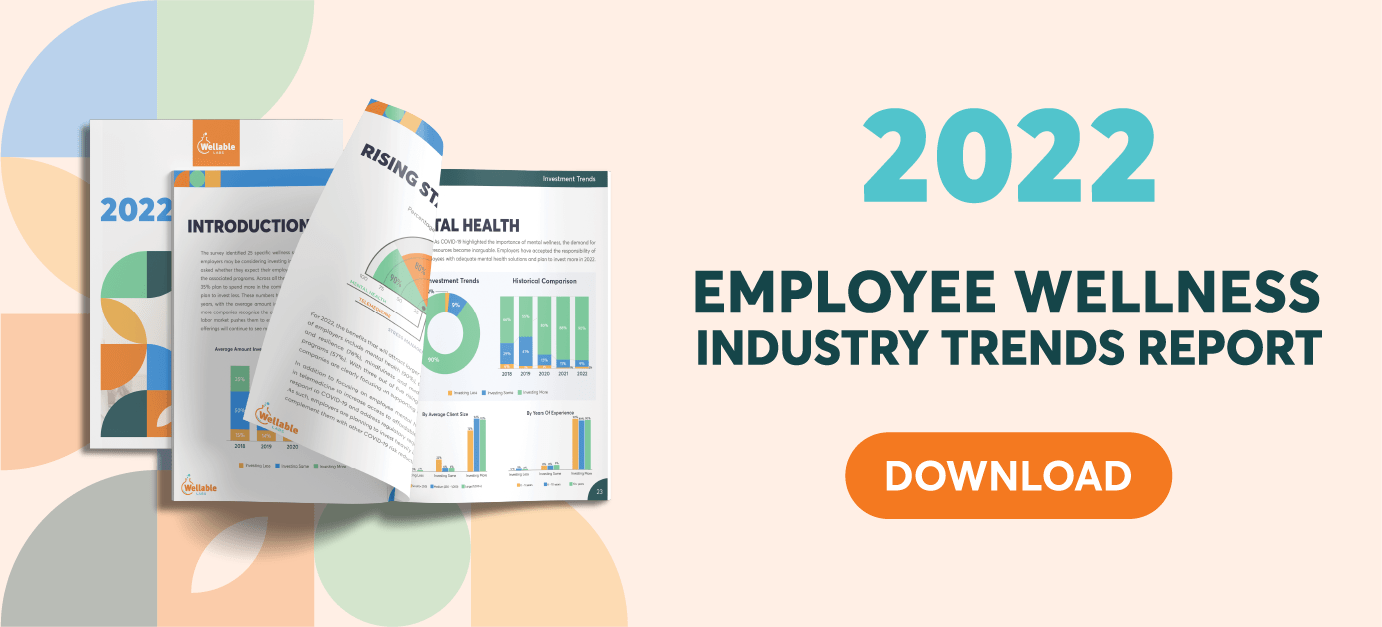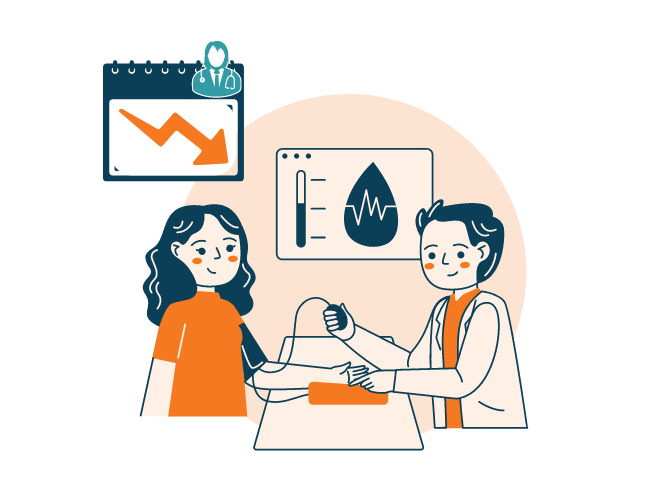Wellable Labs has released the fifth annual Employee Wellness Industry Trends Report, which identifies and contextualizes trends in employers’ benefits strategies.
Each year, brokers are asked to provide information on significant investment trends for the coming year. Given the growing concern with mental well-being in the workplace, it’s no surprise that the 2022 report showed that 90% of employers plan to invest more in mental health benefits. With this sharp increase in investment, employers are responding to the growing mental health crisis, and wellness practitioners are left wondering which initiatives will receive funding. To gain a better sense of the mental health strategies companies will deploy, respondents were also asked to list the top three new offerings used by their clients to promote mental health in the workplace.
Their responses reveal a curious trend. Though many employers plan to increase investments in broad, multi-purpose benefits, they are reluctant to choose specific solutions with limited use cases. For example, while 71% of brokers stated that they work with companies that plan to invest more in mindfulness and meditation therapies in 2022, few listed specific versions of these solutions as top new offerings used by their clients to promote mental health. Only 20%, 13%, and 4% of brokers said mindfulness classes, mindfulness training, and meditation classes, respectively, were top three offerings their clients were looking to implement.

Bringing over 16 years of experience in corporate wellness and healthcare, Shira Wilensky, National Practice Leader for Health and Well-Being at OneDigital, proposed a compelling explanation for why so many companies are reluctant to add or rely heavily on mindfulness and meditation solutions to promote mental health in the workplace:
I’m not surprised employers are focusing more on expanding access to care as opposed to mindfulness and meditation. Mental health is a spectrum, and we are seeing that this is not so much a time for maintenance, but to truly save people from drowning.
In other words, though employers believe that mindfulness and meditation practices are effective tools, companies lack confidence that they can be used to address the kinds of mental health struggles that many employees currently deal with.
The ongoing pandemic have left employees experiencing higher levels of stress, anxiety, burnout, and isolation. In turn, these symptoms have increased the frequency of other harmful habits and behaviors (e.g., alcohol and tobacco use, sleep disruptions, and sedentary behaviors).
Additionally, several studies have found that popular mindfulness strategies (e.g., breathing exercises, body scans, and meditation), have been studied primarily for their short-term benefits. As a result, employers may feel more confident about solutions that provide a broad and multi-prolonged approach to mental health, including employee assistance programs (EAP), digital health tools, and education.

Takeaway
Employers are eager to provide employees with a broad array of mental health offerings. With that said, many find it difficult to select offerings to add on or increase access to, especially when they appear to have limited use cases. When combined with a heightened awareness of how important it is to choose the “right” solution, employers may experience decision paralysis, stopping short of finalizing a concrete strategy.
To counteract this problem, employers must clearly articulate what they hope to achieve by increasing investment in a given solution. With detailed goals in mind, leaders will have an easier time evaluating the various forms that a general benefit category can take.
Additionally, businesses can opt for multi-purpose solutions. When a benefit fulfills a host of needs at once, its value can be distributed across many areas.
Many businesses are likely already doing both of these things. This may explain why some companies plan to invest more in mindfulness and meditation solutions while others will continue avoiding them. Businesses looking for interventions for non-clinical levels of stress and anxiety may be the ones who are spending more, while those that want to combat more severe conditions are planning to utilize other offerings. It also may explain why versatile benefits like flexible work schedules are frequently listed as a top new benefit for promoting mental health.
With that said, more specialized benefits have value and should not be disregarded. Instead, companies must stay up to date with the latest research so they can make informed decisions about whether or not to utilize more pointed offerings.













